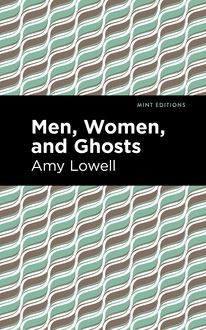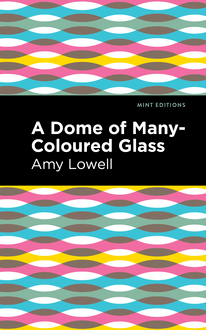-
 Univers
Univers
-
 Ebooks
Ebooks
-
 Livres audio
Livres audio
-
 Presse
Presse
-
 Podcasts
Podcasts
-
 BD
BD
-
 Documents
Documents
-
- Cours
- Révisions
- Ressources pédagogiques
- Sciences de l’éducation
- Manuels scolaires
- Langues
- Travaux de classe
- Annales de BEP
- Etudes supérieures
- Maternelle et primaire
- Fiches de lecture
- Orientation scolaire
- Méthodologie
- Corrigés de devoir
- Annales d’examens et concours
- Annales du bac
- Annales du brevet
- Rapports de stage
La lecture à portée de main
Vous pourrez modifier la taille du texte de cet ouvrage
Découvre YouScribe en t'inscrivant gratuitement
Je m'inscrisDécouvre YouScribe en t'inscrivant gratuitement
Je m'inscrisEn savoir plus
Vous pourrez modifier la taille du texte de cet ouvrage
En savoir plus

Description
Alvina Houghton is bored by her little town, and feels trapped after her plans to elope with her lover falls through. Though she had previously dreamed of training as a nurse, Alvina is unsure what to do with her life. Alvina comes of age as her father, James, faces the failure of his business. She has a difficult relationship with her father. He is a man who never fully indulged in his passions, but has made eccentric financial decisions. In attempt to secure his daughter’s upbringing and save his fortune, James buys a theater. There, he employs many traveling artists, as well as a handsome and sensual Italian man named Ciccio. After meeting the man, Alvina feels drawn to him, especially since he is well-traveled. The two share a slow-burn courtship, and after a lifetime of being raised around stifled passion, Alvina feels alive. Seduced by Ciccio and desperate for adventure, Alvina decides to run away with Ciccio, fleeing to Naples. As she leaves behind her life of security, comfort, and predictability, Alvina starts to explore desire, spontaneity, and her sexual freedom. Free to do as she wishes with Ciccio, Alvina explores Naples and her own sexual awakening, feeling independent and unfettered. However, even as she finds herself, Alvina also faces the reality of such fleeting freedom. D.H Lawrence’s The Lost Girl is an emotionally compelling narrative featuring strong characters, wit, and prose that is both beautiful and bitter. With themes of feminism, class divisions, and family, The Lost Girl is a relatable story that leaves readers considering fate and the future. Through meticulous detail, readers are given valuable insight on the class distinctions and societal expectations of the 1920s in Europe. D.H Lawrence’s The Lost Girl was awarded the James Tait Black Memorial Prize in 1920 to congratulate its gripping narrative and compelling characters. Now presented in an easy-to-read font and with a striking new cover design, this edition of The Lost Girl by D.H Lawrence restores the novel to modern standards while respecting its original mastery. With these accommodations, contemporary audiences are treated to a reading experience that is both accessible and luxurious.
Sujets
Informations
| Publié par | Mint Editions |
| Date de parution | 07 mai 2021 |
| Nombre de lectures | 1 |
| EAN13 | 9781513275550 |
| Langue | English |
| Poids de l'ouvrage | 1 Mo |
Informations légales : prix de location à la page 0,0500€. Cette information est donnée uniquement à titre indicatif conformément à la législation en vigueur.
Extrait
The Lost Girl
D.H. Lawrence
The Lost Girl was first published in 1921.
This edition published by Mint Editions 2021.
ISBN 9781513270555 | E-ISBN 9781513275550
Published by Mint Editions ®
minteditionbooks.com
Publishing Director: Jennifer Newens
Design & Production: Rachel Lopez Metzger
Typesetting: Westchester Publishing Services
C ONTENTS I. T HE D ECLINE OF M ANCHESTER H OUSE II. T HE R ISE OF A LVINA H OUGHTON III. T HE M ATERNITY N URSE IV. T WO W OMEN D IE V. T HE B EAU VI. H OUGHTON ’ S L AST E NDEAVOUR VII. N ATCHA -K EE -T AWARA VIII. CICCIO IX. A LVINA B ECOMES A LLAYE X. T HE F ALL OF M ANCHESTER H OUSE XI. H ONOURABLE E NGAGEMENT XII. A LLAYE ALSO IS E NGAGED XIII. T HE W EDDED W IFE XIV. T HE J OURNEY A CROSS XV. T HE P LACE C ALLED C ALIFANO XVI. S USPENSE
I
T HE D ECLINE OF M ANCHESTER H OUSE
Take a mining townlet like Woodhouse, with a population of ten thousand people, and three generations behind it. This space of three generations argues a certain well-established society. The old “County” has fled from the sight of so much disembowelled coal, to flourish on mineral rights in regions still idyllic. Remains one great and inaccessible magnate, the local coal owner: three generations old, and clambering on the bottom step of the “County,” kicking off the mass below. Rule him out.
A well established society in Woodhouse, full of fine shades, ranging from the dark of coal-dust to grit of stone-mason and sawdust of timber-merchant, through the lustre of lard and butter and meat, to the perfume of the chemist and the disinfectant of the doctor, on to the serene gold-tarnish of bank-managers, cashiers for the firm, clergymen and such-like, as far as the automobile refulgence of the general-manager of all the collieries. Here the ne plus ultra . The general manager lives in the shrubberied seclusion of the so-called Manor. The genuine Hall, abandoned by the “County,” has been taken over as offices by the firm.
Here we are then: a vast substratum of colliers; a thick sprinkling of tradespeople intermingled with small employers of labour and diversified by elementary schoolmasters and nonconformist clergy; a higher layer of bank-managers, rich millers and well-to-do ironmasters, episcopal clergy and the managers of collieries, then the rich and sticky cherry of the local coal-owner glistening over all.
Such the complicated social system of a small industrial town in the Midlands of England, in this year of grace 1920. But let us go back a little. Such it was in the last calm year of plenty, 1913.
A calm year of plenty. But one chronic and dreary malady: that of the odd women. Why, in the name of all prosperity, should every class but the lowest in such a society hang overburdened with Dead Sea fruit of odd women, unmarried, unmarriageable women, called old maids? Why is it that every tradesman, every school-master, every bank-manager, and every clergyman produces one, two, three or more old maids? Do the middle-classes, particularly the lower middle-classes, give birth to more girls than boys? Or do the lower middle-class men assiduously climb up or down, in marriage, thus leaving their true partners stranded? Or are middle-class women very squeamish in their choice of husbands?
However it be, it is a tragedy. Or perhaps it is not.
Perhaps these unmarried women of the middle-classes are the famous sexless-workers of our ant-industrial society, of which we hear so much. Perhaps all they lack is an occupation: in short, a job. But perhaps we might hear their own opinion, before we lay the law down.
In Woodhouse, there was a terrible crop of old maids among the “nobs,” the tradespeople and the clergy. The whole town of women, colliers’ wives and all, held its breath as it saw a chance of one of these daughters of comfort and woe getting off. They flocked to the well-to-do weddings with an intoxication of relief. For let class-jealousy be what it may, a woman hates to see another woman left stalely on the shelf, without a chance. They all wanted the middle-class girls to find husbands. Every one wanted it, including the girls themselves. Hence the dismalness.
Now James Houghton had only one child: his daughter Alvina. Surely Alvina Houghton—
But let us retreat to the early eighties, when Alvina was a baby: or even further back, to the palmy days of James Houghton. In his palmy days, James Houghton was cr ê me de la cr ê me of Woodhouse society. The house of Houghton had always been well-to-do: tradespeople, we must admit; but after a few generations of affluence, tradespeople acquire a distinct cachet . Now James Houghton, at the age of twenty-eight, inherited a splendid business in Manchester goods, in Woodhouse. He was a tall, thin, elegant young man with side-whiskers, genuinely refined, somewhat in the Bulwer style. He had a taste for elegant conversation and elegant literature and elegant Christianity: a tall, thin, brittle young man, rather fluttering in his manner, full of facile ideas, and with a beautiful speaking voice: most beautiful. Withal, of course, a tradesman. He courted a small, dark woman, older than himself, daughter of a Derbyshire squire. He expected to get at least ten thousand pounds with her. In which he was disappointed, for he got only eight hundred. Being of a romantic-commercial nature, he never forgave her, but always treated her with the most elegant courtesy. To seehim peel and prepare an apple for her was an exquisite sight. But that peeled and quartered apple was her portion. This elegant Adam of commerce gave Eve her own back, nicely cored, and had no more to do with her. Meanwhile Alvina was born.
Before all this, however, before his marriage, James Houghton had built Manchester House. It was a vast square building—vast, that is, for Woodhouse—standing on the main street and high-road of the small but growing town. The lower front consisted of two fine shops, one for Manchester goods, one for silk and woollens. This was James Houghton’s commercial poem.
For James Houghton was a dreamer, and something of a poet: commercial, be it understood. He liked the novels of George Macdonald, and the fantasies of that author, extremely. He wove one continual fantasy for himself, a fantasy of commerce. He dreamed of silks and poplins, luscious in texture and of unforeseen exquisiteness: he dreamed of carriages of the “County” arrested before his windows, of exquisite women ruffling charmed, entranced to his counter. And charming, entrancing, he served them his lovely fabrics, which only he and they could sufficiently appreciate. His fame spread, until Alexandra, Princess of Wales, and Elizabeth, Empress of Austria, the two best-dressed women in Europe, floated down from heaven to the shop in Woodhouse, and sallied forth to show what could be done by purchasing from James Houghton.
We cannot say why James Houghton failed to become the Liberty or the Snelgrove of his day. Perhaps he had too much imagination. Be that as it may, in those early days when he brought his wife to her new home, his window on the Manchester side was a foam and a may-blossom of muslins and prints, his window on the London side was an autumn evening of silks and rich fabrics. What wife could fail to be dazzled! But she, poor darling, from her stone hall in stony Derbyshire, was a little bit repulsed by the man’s dancing in front of his stock, like David before the ark.
The home to which he brought her was a monument. In the great bedroom over the shop he had his furniture built : built of solid mahogany: oh too, too solid. No doubt he hopped or skipped himself with satisfaction into the monstrous matrimonial bed: it could only be mounted by means of a stool and chair. But the poor, secluded little woman, older than he, must have climbed up with a heavy heart, to lie and face the gloomy Bastille of mahogany, the great cupboard opposite, or to turn wearily sideways to the great cheval mirror, which performed a perpetual and hideous bow before her grace. Such furniture! It could never be removed from the room.
The little child was born in the second year. And then James Houghton decamped to a small, half-furnished bedroom at the other end of the house, where he slept on a rough board and played the anchorite for the rest of his days. His wife was left alone with her baby and the built-in furniture. She developed heart disease, as a result of nervous repressions.
But like a butterfly James fluttered over his fabrics. He was a tyrant to his shop-girls. No French marquis in a Dickens’ novel could have been more elegant and raffin é and heartless. The girls detested him. And yet, his curious refinement and enthusiasm bore them away. They submitted to him. The shop attracted much curiosity. But the poor-spirited Woodhouse people were weak buyers. They wearied James Houghton with their demand for common zephyrs, for red flannel which they would scallop with black worsted, for black alpacas and bombazines and merinos. He fluffed out his silk-striped muslins, his India cotton-prints. But the natives shied off as if he had offered them the poisoned robes of Herakles.
There was a sale. These sales contributed a good deal to Mrs. Houghton’s nervous heart-disease. They brought the first signs of wear and tear into the face of James Houghton. At first, of course, he merely marked down, with discretion, his less-expensive stock of prints and muslins, nuns-veilings and muslin delaines, with a few fancy braidings and trimmings in guimp or bronze to enliven the affair. And Woodhouse bought cautiously.
After the sale, however, James Houghton felt himself at liberty to plunge into an orgy of new stock. He flitted, with a tense look on his face, to Manchester. After which huge bundles, bales and boxes arrived in Woodhouse, and were dumped on the pavement of the shop. Friday evening came, and with it a revelation in Houghton’s window: the first piqu é s, the first strangely-woven and ho
-
 Univers
Univers
-
 Ebooks
Ebooks
-
 Livres audio
Livres audio
-
 Presse
Presse
-
 Podcasts
Podcasts
-
 BD
BD
-
 Documents
Documents
-
Jeunesse
-
Littérature
-
Ressources professionnelles
-
Santé et bien-être
-
Savoirs
-
Education
-
Loisirs et hobbies
-
Art, musique et cinéma
-
Actualité et débat de société
-
Jeunesse
-
Littérature
-
Ressources professionnelles
-
Santé et bien-être
-
Savoirs
-
Education
-
Loisirs et hobbies
-
Art, musique et cinéma
-
Actualité et débat de société
-
Actualités
-
Lifestyle
-
Presse jeunesse
-
Presse professionnelle
-
Pratique
-
Presse sportive
-
Presse internationale
-
Culture & Médias
-
Action et Aventures
-
Science-fiction et Fantasy
-
Société
-
Jeunesse
-
Littérature
-
Ressources professionnelles
-
Santé et bien-être
-
Savoirs
-
Education
-
Loisirs et hobbies
-
Art, musique et cinéma
-
Actualité et débat de société
- Cours
- Révisions
- Ressources pédagogiques
- Sciences de l’éducation
- Manuels scolaires
- Langues
- Travaux de classe
- Annales de BEP
- Etudes supérieures
- Maternelle et primaire
- Fiches de lecture
- Orientation scolaire
- Méthodologie
- Corrigés de devoir
- Annales d’examens et concours
- Annales du bac
- Annales du brevet
- Rapports de stage












